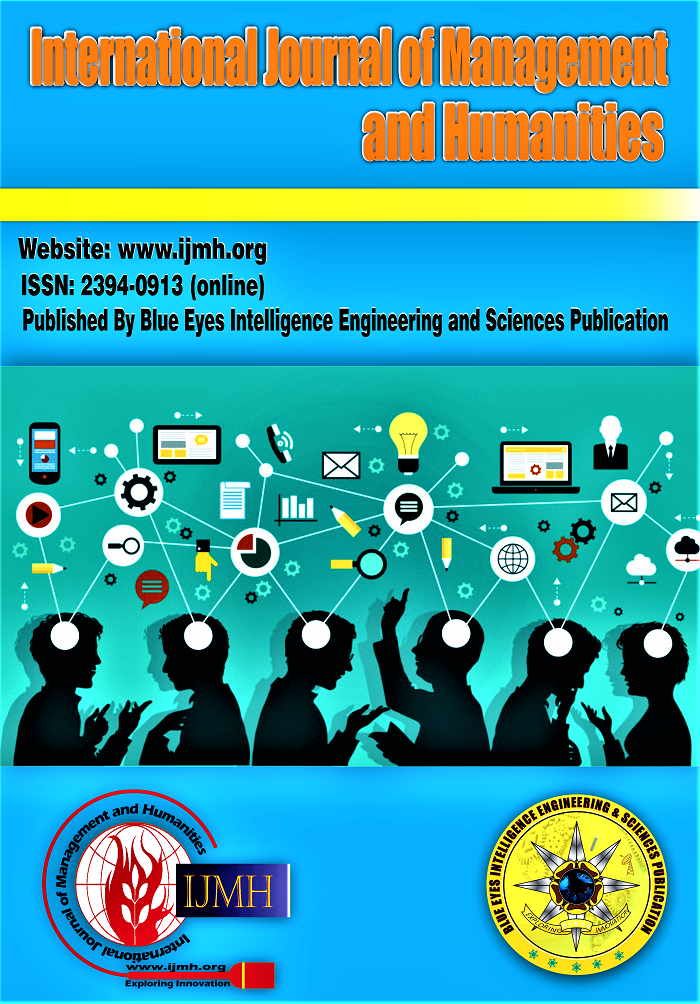A Study on Occupational Stress Among Faculty in Higher Educational Institutions in Northern Coastal Districts of Andhra Pradesh
Main Article Content
Abstract
This study investigates occupational stress among faculty members in autonomous higher educational institutions located in the Northern Coastal Districts of Andhra Pradesh. With increasing academic, administrative, and mentoring responsibilities, faculty members are exposed to a range of stressors, including excessive workload, role ambiguity, job insecurity, poor work-life balance, and insufficient institutional support. Using a quantitative and descriptive research design, data were collected from 331 valid responses through a structured questionnaire comprising 17 stress-related variables. Statistical tools such as correlation analysis, factor analysis, and reliability testing were applied. The findings indicate significant correlations between demographic factors—specifically age and monthly income—and occupational stress. Factor analysis confirmed that workload, compensation, and working hours are major contributors to stress, with strong reliability (Cronbach’s Alpha = 0.914). Despite positive aspects such as peer collaboration and manageable workloads for the majority, a considerable portion of faculty members continue to experience stress due to unclear roles, limited recognition, and interference with personal life. The study recommends targeted institutional interventions, including workload management, improved communication, equitable compensation, role clarity, and faculty participation in policy decisions to reduce stress and enhance organisational well-being.
Downloads
Article Details
Section
How to Cite
References
Shrivastava, A. (2021). Factor Analysis of Occupational Stressors among Academicians from Autonomous Colleges in Madhya Pradesh, India. Asian Journal of Managerial Science, 10(2), 27–33. DOI: https://doi.org/10.51983/ajms-2021.10.2.2914
Rana, A., & Soodan, V. (2019). Effect of Occupational and Personal Stress on Job Satisfaction, Burnout, and Health: A Cross-Sectional Analysis of College Teachers in Punjab, India. Indian Journal of Occupational and Environmental Medicine, 23(3), 133–140.
DOI: https://doi.org/10.4103/ijoem.IJOEM_216_19
Prasad, K. D. V., Vaidya, R., & Chitta, S. (2022). Occupational Stress and Psychological Well-being as a Function of Virtual Teaching and Faculty Performance during the COVID-19 Pandemic: An Empirical Study with Reference to Higher Academic Faculty in and Around Hyderabad City. International Journal of Health Sciences, 6(S7), 47402–47412. DOI: https://doi.org/10.53730/ijhs.v6nS7.13253.
Balachandran, K., Maniyara, K., Palle, E., & Kodali, P. B. (2025). Stress and Hypertension among University Teachers: A Cross-Sectional Survey from Northern Kerala. Indian Journal of Occupational and Environmental Medicine, 29(1), 15–20.
DOI: https://doi.org/10.4103/ijoem.ijoem_62_24.
Bist, A. S., Rawat, B., Rahardja, U., Aini, Q., & Prawiyogi, A. G. (2022). An Exhaustive Analysis of Stress on Faculty Members Engaged in Higher Education. IAIC Transactions on Sustainable Digital Innovation (ITSDI), 3(2), 126–135.
DOI: https://doi.org/10.34306/itsdi.v3i2.533.
Sushma, Malhan, D., & Kumar, M. (2024). Analysing Work Stress Indicators and Remedial Measures among Faculty in Higher Education Institutions. Frontiers in Health Informatics, 13(4). [URL from publisher/researchgate] Health Informatics Journal
Impact of Stress on Faculties’ Attitudes: A Study of Higher Education Institutes (2024). In Computing, Communication and Learning (CoCoLe, 2023) (pp. 200–212). DOI: https://doi.org/10.1007/978-3-031-56998-2_17.
Junça Silva, A., & Rodrigues, R. (2024). Affective Mechanisms Linking Role Ambiguity to Employee Turnover. International Journal of Organisational Analysis, 32(11), 1–18. DOI: https://doi.org/10.1108/IJOA-08-2023-3891.
Impact of Role Stressors on Turnover Intention and Affective Commitment … (2025). The Critical Review of Social Sciences Studies, 3(2), 221–?. [ResearchGate PDF] ResearchGate
Prehypertension and Hypertension among School Teachers: An Epidemiological Study from South India (2024). Medical Journal of Dr. D.Y. Patil Vidyapeeth, No. 2, 349–354. https://doi.org/10.4103/mjdrdypu.mjdrdypu_379_23 OUCI





